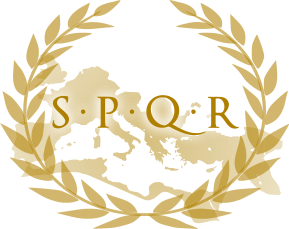The Roman Empire was one of the most powerful and wealthy in history, but what exactly did that lead to? Over the Roman Empire’s long history they did some strange and interesting things. From the trade of urine, to the most insane gladiatorial match you could possibly imagine, and many other interesting things about the Roman Empire. This is a list of 10 insane facts about the Roman Empire you didn’t know.
Just How Large It Really Was
The Roman Empire was one of the largest empires in history. The Roman Empire started off in Rome, and then spread it’s borders until it had dominated the Mediterranean. It’s controlled territory in Europe, North Africa, and the Middle East. The Empire reached it’s largest extent under Trajan. Who reigned as Emperor from 98 to 117. At this point the Empire owned 5 million square kilometres of land. There were 55 to 60 million people living in the Empire’s borders at it’s extent. This isn’t a lot today, but at the time it was one fourth of the world’s population. It was the largest united political entity until the mid 19th century. This helps give you an idea of just how powerful it really was.
The Urine Trade

In Rome, they had a different view of urine than we have today. It was considered quite valuable because of the amount of ammonia found in it. The Romans considered urine useful for cleaning laundry, tanning leather, and cleaning their teeth. Laundry places used to leave giant clay pots outside their residence, as they wanted people to fill it with valuable ammonia, whenerver they needed to go. People would buy and sell urine due to its value. The emperor Vespasian smelt money, and perhaps something else, so he invoked a tax on the urine trade. This tax was quite controversial, and Vespasians own son protested in quite a dramatic way. His son Titus, took a piece of the money he had earnt, and put it up to his nose. He then asked him if it smelt, since it was the product of urine.
Romans Feared Left Handed People

The Romans had a deep prejudice against left handed people, which stemmed from the belief that they were untrustworthy, and spread bad luck. Sinister is a negative word in the modern day but originally it meant left. It’s due to this strange belief held by the Romans, that the word holds negative connotations. This prejudice ran so deep they would wear a ring on the third finger of their left hand, to ward off bad luck brought by lefty devils.
The Sack Of Rome
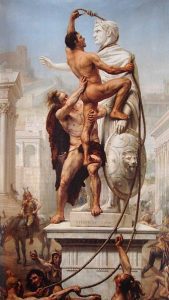
Alaric the Visigoth is the man who sacked Rome in 410 AD. He did so out of revenge, and envy. He wanted above all else to be a Roman, but he was betrayed and attacked by Rome. In response he took revenge by crushing the “Eternal City”. It had been 800 years since Rome had been lost to an enemy force. Even though Rome wasn’t the capital at the time, it sent shock waves throughout the empire. Alaric planned on entering into negotiations with the Romans but was tricked, and outraged. He had already invaded Rome twice, but the third invasion was a total shock, which likely contributed to its victory.
Roman Gladiators Drank Energy Drinks
Gladiators in ancient Rome had access to something which could be considered similar to a modern energy drink. The drink was made of plant ash, and water. It would have been a difficult concoction to swallow, but the high levels of calcium would have been useful. Although it’s unlikely it improved their odds that much. These gladiators were treated much like modern day athletes with expert medical attention, intensive training routines, and fed a special diet.
Roman Taverns
In France archaeologists made an amazing discovery giving us a window into an old Roman tavern. The tavern is 2,000 years old, and littered with drinking bowls animal bones. It was also full of plates, and reclining chairs. Inside were three ovens, and a millstone. Millstones were used for grinding flour. The tavern was a gathering place for both Romans, and Celts, and was likely a particularly popular spot. If you were to enter the tavern as a customer you could enjoy cuts of cow, and sheep, as well as flat bread, and fish. Many of the patrons of this bar would have stopped growing food just to eat here.
The Praetorian Guard
The Praetorian Guard was responsible for guarding the emperor, but over the years their loyalty began to disappear, and corruption took its place. They had an unprecedented amount of influence over the emperor’s well being, and it was even possible for them to appoint, remove, and kill emperors of the Roman Empire. One part of this was known as the Donative. A gift the guard would receive from a new emperor, after the last one was killed. This created an incentive for the guard to kill an emperor in order to try and gain this financial reward.

Decimation
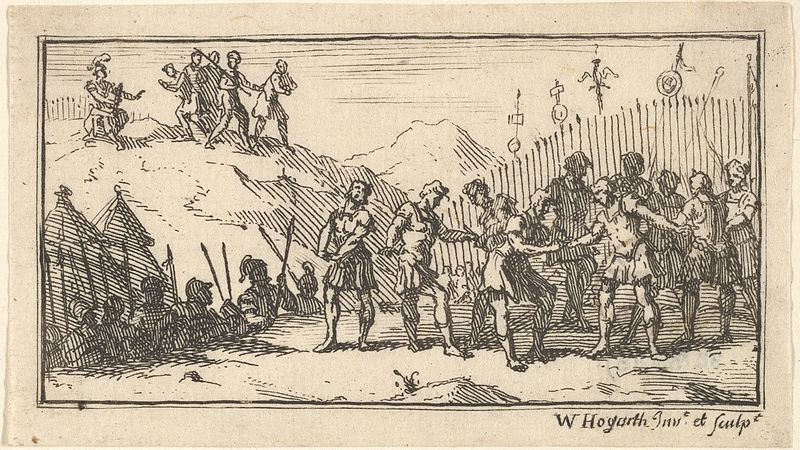
Decimation was the punishment dealt by the Romans, to discourage crimes such as mutiny or desertion. It involved stoning to death every tenth man in an army unit, where the crime took place. This was one of the most effective punishments against those crimes because it meant any who deserted not only risked their own lives, but the lives of their friends as well. It also meant their fellow soldiers might attempt to catch them, or take action to stop mutiny or desertion themselves, before it was too late. A cohort or around 480 soldiers would be selected for punishment, and split into groups of 10. Each group would have to draw lots, and one of the soldiers would draw the lot that meant he had to die. The remaining nine would then stone their unlucky friend to death.
Gladiator Matches Began As Funeral Ceremonies
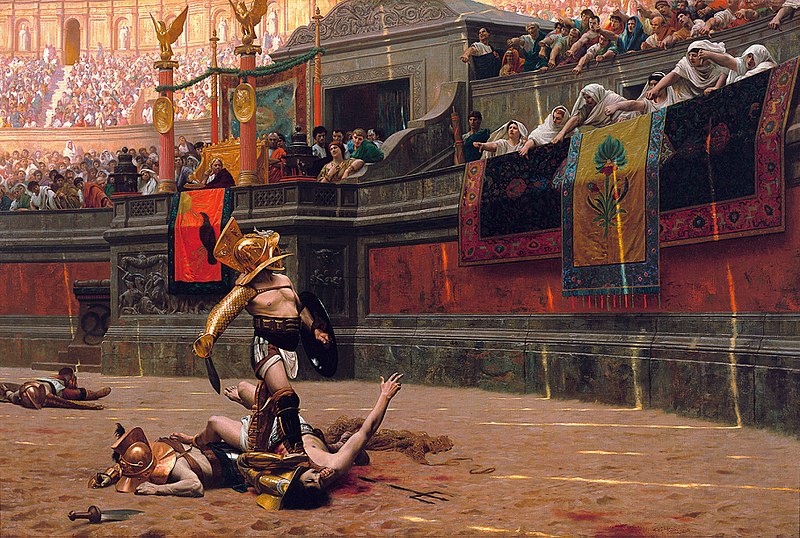
They were originally a part of funeral ceremonies for rich aristocrats. Two slaves would fight, as a despicable form of eulogy. It was supposed to display the virtues of the deceased. Romans believed that human blood purified deceased souls. Julius Caesar took this further than anybody else, when he had hundreds of slaves kill each other after his daughter, and father’s death. The death matches were so popular that it wasn’t too long before they were put on for simple entertainment.
Naumachia
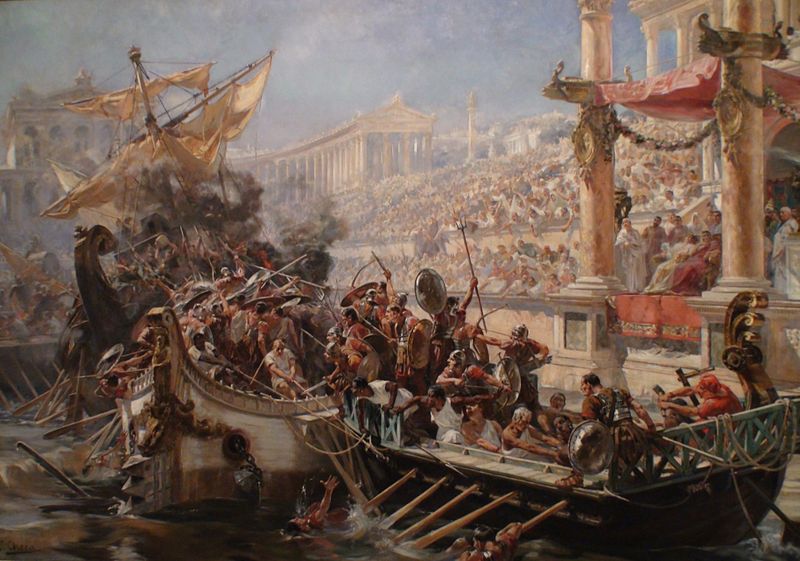
Naumachia was a type of Roman gladiatorial battle, and it was one of the most ludicrous, magnificent things the Roman Empire ever concocted. It involved filling the Colosseum with water, and then simulating a naval battle with large, real ships, full of real men. They would fight for real, and many of them died. This was one of the most insane things the Romans ever came up with. The first battle involved 2000 combatants, and 4000 rowers, which amounted to 20 ships in total. This likely wasn’t even the biggest match. The men in the ships were death row inmates, who were ordered to salute the emperor beginning with the words “those who are about to die salute you”. This was one of the most expensive games for obvious reasons, so it was only used for special occasions to “celebrate”.












